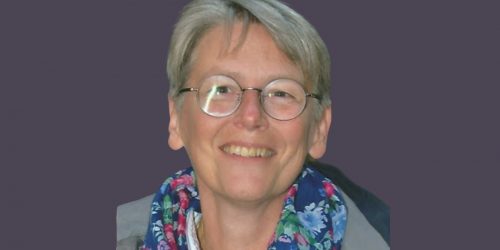
Lucy Fellow promoted to Professor in Language Acquisition and Cognition
Dr Henriette Hendriks is Fellow and Vice-President at Lucy Cavendish College
Linguistics is the systematic study of human language. Superficially, there’s huge variation among the world’s languages, and linguists not only describe the diverse characteristics of individual languages but also explore properties which all languages share and which offer insight into the human mind. The study of linguistics draws on methods and knowledge from a wide range of disciplines. For instance, the study of meaning draws on philosophy, the analysis of the speech signal uses methods from physics and engineering, and the study of language acquisition draws on psychology. Whilst the course does provide good preparation for vocational training in fields such as speech therapy, language technology, translation, interpreting and forensic linguistics, the skills developed in the course are transferrable and graduates go on to pursue a variety of careers.
In Part I of the degree students take four papers: Sounds and Words; Structures and Meanings; Language, Brain and Society; and History and Varieties of English.
In second year, students choose four papers (details on available papers can be found on the department website).
In final year, students complete three papers consisting of Linguistic Theory, and another two optional papers. Alongside this, students also complete a dissertation.
Further information can be found on the Faculty and University websites.
Typical offers require
For other qualifications see the main entrance requirements pages on the University website.
Subject Requirements
A-level
Required: None
Highly recommended: English (Literature or Language), Mathematics, a language, a mixture of arts and sciences subjects
IB
Required: None
Highly recommended: English (Literature or Language and Literature), Mathematics, a language
Mature students and those taking other qualifications are encouraged to contact our Admissions Office (at admissions@lucy.cam.ac.uk) to discuss the entry requirements for their qualifications.
Written work
Candidates are not required to submit written work.
Assessments
Applicants shortlisted for interview are required to sit a Cambridge College registered admissions assessment. Applicants do not need to register themselves for this assessment in advance.
Interviews
Interviews allow us to distinguish amongst excellent applicants by assessing the skills and aptitudes essential for successful study in higher education, and your academic qualities – essentially, how do you think?
Interviews for all applicants to Lucy Cavendish will take place virtually. The aims and content will still be the same as in-person interviews. You can read more about Lucy Cavendish's online interviews here and you can read the University's information on interviews here.
Each candidate typically has two interviews, lasting between twenty and thirty minutes. In some cases, you will be given preparatory reading beforehand.
In a few subjects, you will be interviewed by more than one College or in the Faculty. You will be notified of this in your interview invitation.
Supracurricular exploration is an important way to expand your knowledge of your subject, explore your interests and develop your skills. Our new webpage contains guidance on supracurricular exploration and a comprehensive source of resources, grouped according to undergraduate degrees at Cambridge.
Sign-up for our mailing list
We send out monthly newsletters to update you on exciting events and opportunities happening both in Lucy Cavendish College and across the wider university.
Attend an open day or event
Our Events and Open Days page advertises regular events held by Lucy Cavendish College. If you can, join us for a College Open Day to discuss your application with a member of our admissions team.